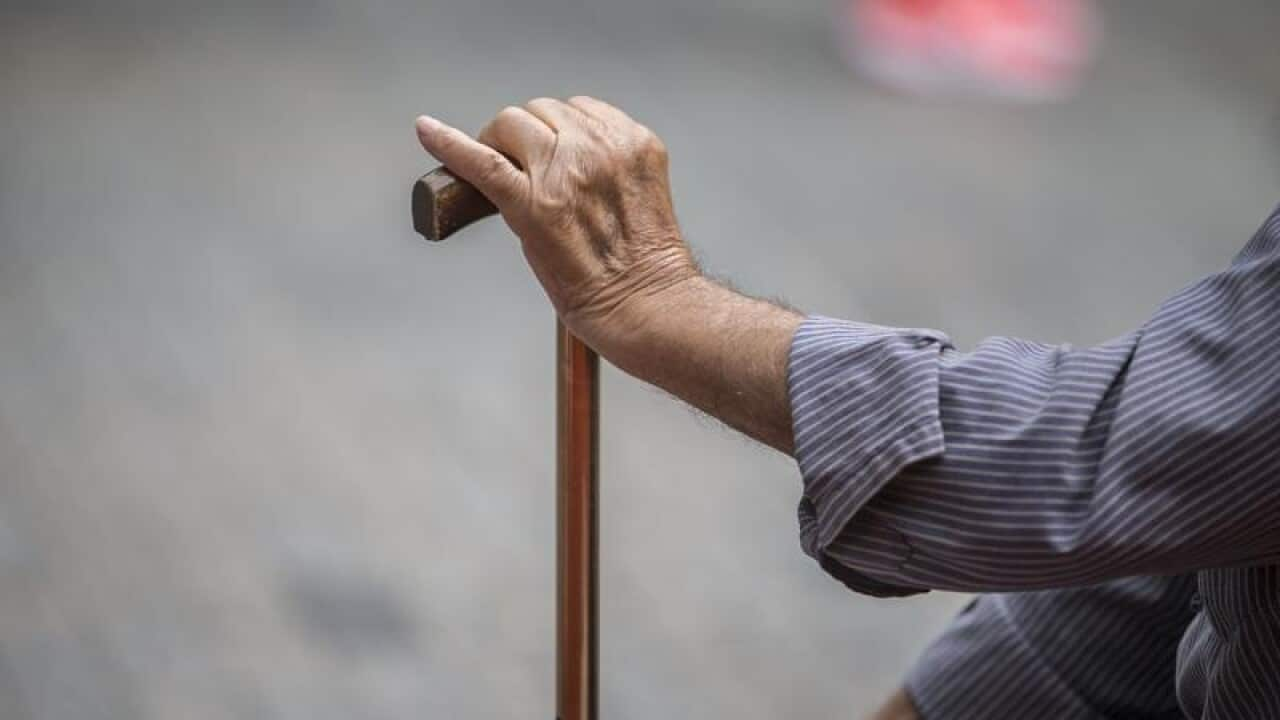Exhausted and devastated after another failed attempt at short-term respite care for her husband with dementia, Rosemary Cameron felt utterly alone.
Staff at the aged care facility had threatened to call police unless she collected him, saying he was "out of control".
Ms Cameron found him with blood on his clothes from a gash on his hand, sitting at the breakfast table with other residents.
She was told nothing but to pack his things and leave.
"I just remember feeling so extremely sad for Don, to be almost rejected when he needed help the most," an upset Ms Cameron told the aged care royal commission on Monday.
Mixed with the sadness was anger at the lack of understanding by so-called trained professionals, shame, devastation and utter loneliness.
"Walking out of the facility with Don in one hand and his goods in the other, I hopped in the car and I thought I can't rely on anybody," Ms Cameron said.
"I just don't think there's anything out there."
She later discovered staff tackled an anxious Mr Cameron after he picked up a chair. He then panicked and threw his arm back, hitting one of the attendants in the mouth.
An earlier respite stint at another Victorian aged care home lasted only three days before a nurse ordered urgent admission to a mental health facility because Mr Cameron was "behaving badly".
Ms Cameron said she struggled to find a facility whose staff understood Lewy body dementia and how to manage it.
"It's pretty upsetting because, you know, Don wasn't a criminal," she told a public hearing focusing on the needs of family and unpaid carers.
"He wasn't choosing to do this, this was his illness."
Ms Cameron said her husband ended up so heavily sedated in the mental health facility he was "knocked out" while another day she found him bruised and face down on the floor after he fell off a chair.
Ms Cameron said she spent about three years under threat of attack and injury due to her husband's constant state of fear and confusion, as the paranoia, hallucinations and aggression symptoms of the disease set in.
Mr Cameron went into full-time care in a specialist nursing home for mental health patients in 2016, after almost 11 months in a hospital.
The couple had been inseparable since they were teenagers.
Ms Cameron thought she would be able to look after the man she loved, the man who had been full of life and fun.
"However as the exhaustion set in, I realised I was not Superwoman and without more support in the way of assistance within the home, occasional respite care and understanding from professionals, I failed."
While Ms Cameron's story was described as incredibly distressing, other carers of elderly family members also detailed the difficulties in accessing support and respite services as a three-day hearing began in Mildura in regional Victoria.
Senior counsel assisting the commission Peter Gray QC said there were expert and anecdotal indications residential aged care respite was too often perceived as a negative and even a risky experience.

